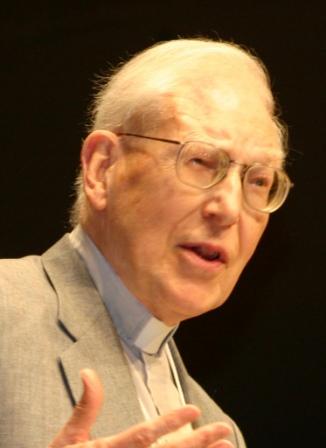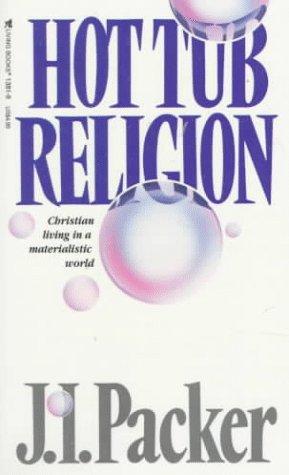
Warnings from the Kirk Cameron Interviews
By Monte Kuligowski
Who would have thought that stating basic Christian doctrine could cause a "firestorm" of condemnation in the United States?
Welcome to the post-Christian culture of 2012.
Piers Morgan was in customary form when he recently dared Kirk Cameron to say that homosexuality is a sin on his CNN program. Morgan didn't literally say, "I dare you." But questions on homosexuality as put to Bible-believing Christians serve as liberal litmus tests for the acceptance or wrath of the One Voice media. After a loaded question is dropped, the leftwing inquisitor sits back and waits for the headline sound bites.
We know what the politically-correct answers on the subject sound like.
We also know what constitutes liberal heresy. Traditional Christian doctrine from the Holy Bible is blasphemy to the postmodern ear.
Unsurprisingly, Kirk Cameron, as an outspoken Christian, gave the wrong answers.
First, Morgan wondered out loud whether Cameron would tell his children "that gay marriage is a sin?"
Just to get the reaction from Morgan, I wish Cameron had responded, "Of course not Piers, I believe every marriage should be a happy one." But I digress. Of course Cameron would tell anyone that any distortion of holy matrimony's definition is wrong. Cameron provided Morgan with the indispensable elements of marriage.
Next, Morgan asked, "Do you think homosexuality is a sin?" That's a little different than asking whether homosexual behavior is wrong. Someone might struggle with homosexual desires yet not sin. But Cameron appeared to believe that Morgan was talking about homosexual practice. Here's Cameron's "firestorm" response:
I think that it's — it's unnatural. I think that it's — it's detrimental and ultimately destructive to so many of the foundations of civilization.
Morgan's next question is predictable. It's right out of the liberal Inquisitor's Handbook: "What do you do if one of your six kids says, dad, bad news, I'm gay."
Cameron said he would have a heart to heart with his child, with the sound counsel that "there's all sorts of issues that we need to wrestle through in our life. Just because you feel one way doesn't mean we should act on everything that we feel."
Morgan noted how he would respond to his hypothetical "gay" son: "If one of my sons said that [he's "gay"], I'd say that's great, son. As long as you're happy."
Forget about the consequences, as long as you're happy! That sums up our current pagan culture nicely. If it feels good, do it. That belief is the polar opposite of traditional Christianity which teaches the created to reject base desires in order to find lasting joy in doing the will of the Creator.
But Piers Morgan does more than provide a bumper sticker for the new post-Christian left — he (unwittingly?) points in the direction the prominent "gay" rights campaign is heading: to the suppression of the rights of Christians.
And yet some people would say that telling kids that being gay is a sin or getting married is a sin or whatever, that in itself is incredibly destructive and damaging in a country where seven states now have legalized it.
The "some people" Morgan refers to that matter are the supposed experts of our day. Morgan forgets to mention that wherever so-called "gay" marriage has been legalized in the U.S., it has been by judicial and political fiat against the will of the voting majority.
The authoritarian, hard core leftists who use their experts to rule our secular society have a boundaries problem. They are strategically forcing acceptance of homosexual behavior and "marriage" upon us and they will not stop there. If "telling kids that being gay is a sin," in the view of our elitist rulers, is "incredibly destructive and damaging" then children should be protected from religious bigots. At least that's the reasoning used to promote the banning of biblical teaching on homosexual behavior in some progressive countries.
Classifying biblical pronouncements as hate speech and arresting people for their verbal expressions of "homophobia" could only happen in places that have been bankrupted by secularism, like England, right? Well, the United States has been running hard after the European models of secular socialism, moral relativism, multiculturalism, tolerance (of everything but traditional Christianity), global collectivism, etc., for quite some time.
When Ann Curry had Kirk Cameron on NBC Today to chastise him about the "firestorm" he "set off" and his forbidden words to Morgan, Kirk was surprised. Cameron reminded Curry that he has been "consistent for 15 years" as a Bible-believing Christian. "What I would have thought was more newsworthy is if I had said something that contradicted the Word of God; if I had contradicted my faith."
I think what's most newsworthy is that Christians are under attack in America for expressing basic tenets of the faith.
Piers Morgan covered the angle that "some people" believe the biblical truth on homosexual behavior is harmful to children. Then, Ann Curry framed Cameron's free speech and religious expression as words that incite hate and mistreatment of homosexuals.
After reading Cameron's words back to him with a sense of horror, Curry one-ups Morgan's "some people," with the trusted "many people" device. "Many people are suggesting that this is hate speech. Are you encouraging people to feel hate towards gay people?"
It wasn't enough for Cameron to explain that he doesn't hate homosexuals and that he loves all people in the world.
For, Curry immediately pounced with this pre-scripted inquisition: "Do you feel — do you feel any responsibility saying words like that, that might encourage people to feel that it's okay to treat — mistreat gay people?"
At that point, Cameron had to be thinking, is this woman crazy?
Cameron tried to explain that he is not for the mistreatment of anyone. But, apparently, Curry wanted a full recanting of his heretical faith and a promise to remain silent in the future. The scolding continued:
Why do you say things like this that you know are going to cause people to push back? Why do you even talk about it, then? Because this is not the first time you've been asked about it. It's not the first time you've made comments that have caused people a lot of alarm.
Um, maybe Cameron says "things like this" because he was specifically asked the loaded questions. Was Cameron supposed to plead the Fifth or lie about what the Bible says?
What should cause "people a lot of alarm" are the liberal fascists in the news media who want to silence Christians and normalize sinful behavior.
The far left with its speech codes and faux moral superiority via groupthink issue consensus, poses a clear and present danger to our constitutional religious liberties.
The Obamacare medicinal-abortion, sterilization and contraception mandate is the inverse of what is happening with religious speech. With the healthcare mandate people of faith are being forced to act contrarily to their beliefs to support the values of postmodern politicians and bureaucrats in power.
And, as the Cameron interviews hint, people of faith will eventually be forced into silent submission as the values of the elitists of postmodern culture and government clash with the values of traditional religion and morality.
Unless, of course, America can throw off the tyranny of liberalism and return to her God and Constitution — but the hour is late and time is of the essence.
© Monte Kuligowski






